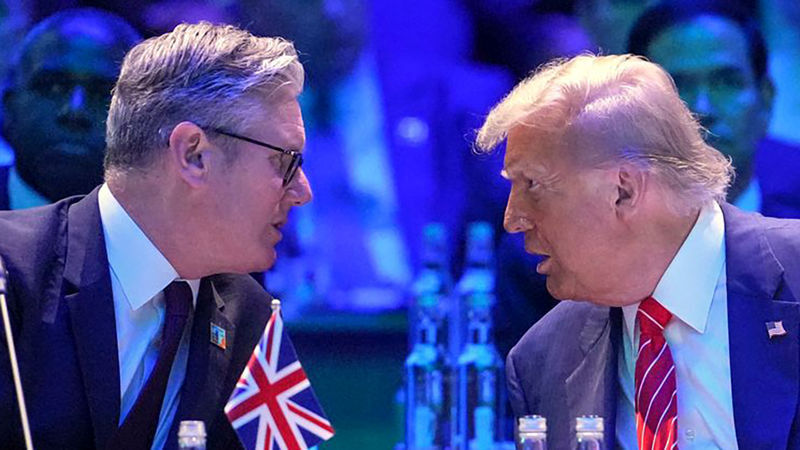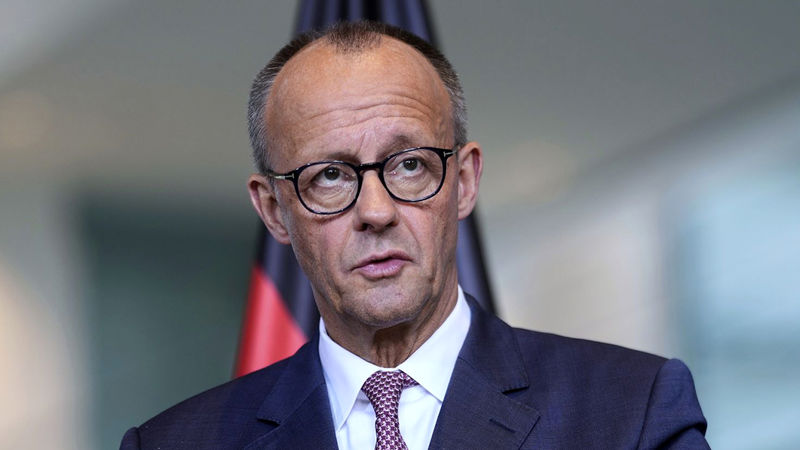The United Kingdom is prepared to recognize the State of Palestine today.
Rokna Political Desk: Britain is set to formally recognize the State of Palestine today, a move that could reshape diplomatic dynamics in the Middle East.

According to Rokna, citing CNN, the British government stands on the verge of officially recognizing the State of Palestine today, a historic step that will resonate widely across international politics.
Trump Voices Opposition to UK Plan on Palestinian Recognition
US President Donald Trump openly acknowledged a rare policy difference with British Prime Minister Keir Starmer on the question of recognizing a Palestinian state, during a joint press conference Thursday as part of his state visit to the United Kingdom.
Although privately frustrated with Israeli Prime Minister Benjamin Netanyahu over his strikes on Hamas leaders in Qatar, Trump expressed unqualified backing for Israel in his remarks. He recalled the atrocities of Hamas’s assault on Israel on October 7, 2023, stressing that his chief priority remains the release of hostages.

Addressing Starmer’s plan to recognize a Palestinian state — a move Britain is expected to take alongside several other nations in the coming days — Trump acknowledged the disagreement but downplayed its significance. “I have a disagreement with the prime minister on that score. One of our few disagreements,” he said.
Why the UK is moving toward recognition
London’s decision had been signaled as early as July, when Prime Minister Starmer outlined conditions Israel would need to meet by September to avoid such recognition. These included progress on freeing hostages, securing a ceasefire with Hamas, and committing to “a sustainable long-term peace” through a two-state framework.
With little prospect of those conditions being met, it became a matter of timing rather than possibility that Britain would follow France and other European countries in extending recognition. Starmer delayed a final announcement while Trump was visiting the UK, though Trump publicly underscored his opposition.
Political pressures at home
The Labour leader has also faced significant internal pressure. His government has been shaken by resignations, missteps, and economic challenges. In July, over half of Labour’s MPs signed a letter demanding immediate recognition of a Palestinian state. Some warned that further hesitation could alienate Muslim supporters within the party.
Public opinion is also favorable. A recent YouGov poll showed 44% of Britons support recognizing Palestine, 18% are opposed, and 37% remain undecided.
Starmer’s political balancing act
Starmer’s handling of the Israeli-Palestinian conflict has been a delicate balancing act. Labour, under former leader Jeremy Corbyn, was plagued by accusations of antisemitism, with the UK’s human rights watchdog in 2020 ruling the party had committed “unlawful” harassment and discrimination.
Starmer has since worked to rebuild trust with British Jews but, in doing so, lost support from Labour’s left wing, which has pressed for a harder line against Israel. The government has also come under criticism for its policing of pro-Palestine demonstrations after proscribing Palestine Action.
Amid widespread outrage over Israel’s military operations in Gaza, both domestically and internationally, Starmer’s own cabinet ministers have been urging him to move forward with recognition. Previous UK governments had withheld from such a step, insisting it should only come as part of a negotiated two-state peace settlement.
Divisions within Europe and the G7

Britain, France, and Canada appear set to become the first G7 states to recognize Palestine, but others, including Germany and Italy, have made clear they will not follow.
Berlin and Rome argue recognition must be the outcome of negotiations, however distant those talks may be. German Chancellor Friedrich Merz reiterated his opposition on Thursday in Madrid, stating, “The German government is not currently considering recognizing Palestinian statehood. We view recognition as one of the final steps, not an opening move, toward a two-state solution.”
Italian Prime Minister Giorgia Meloni expressed similar reservations in July, saying she supports the creation of a Palestinian state but believes recognition before its establishment would be counterproductive.
Japan has also indicated it will not recognize Palestine during next week’s UN meetings. Foreign Minister Takeshi Iwaya stressed Tokyo’s support for a two-state solution but said recognition is a matter of timing.
Send Comments